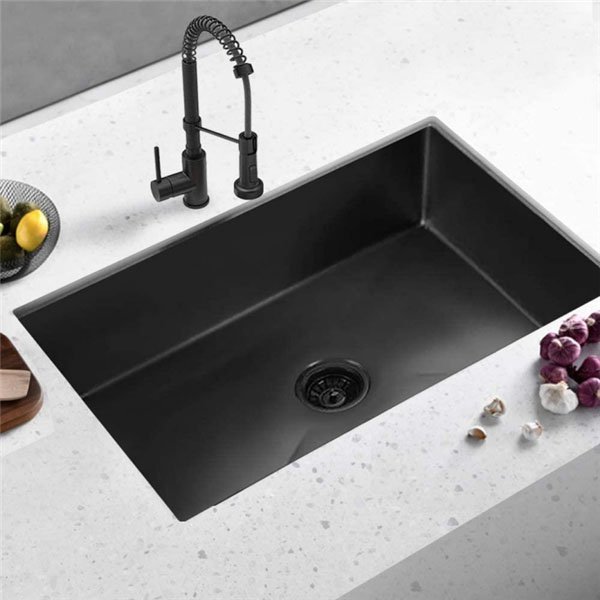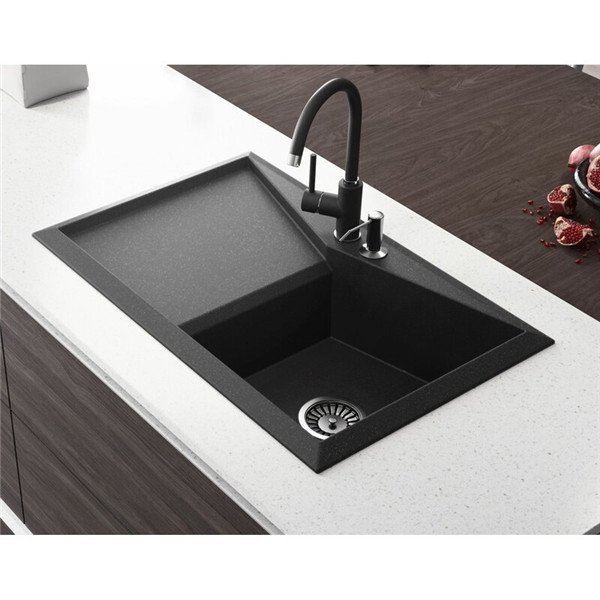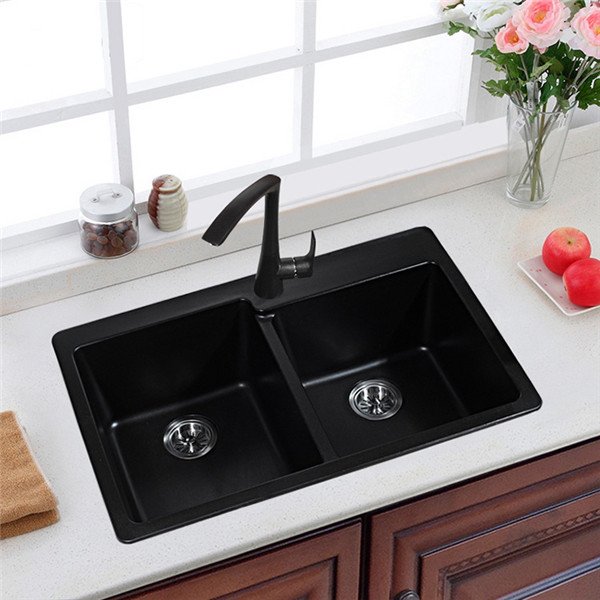Granite sinks offer excellent characteristics and are a popular choice for people all over the world.
But a lot of them have the same question: “Does discoloration occur in granite composite sinks?”
We have the answers in this article.
Let’s get right to it!
Making Of a Granite Composite Sink
To understand whether discoloration occurs or not, we need to look at the composition of the sink.
The sink is made from several materials. There are also some compounds added to increase the strength of the sink. These materials include quartz sand and acrylic resins.
These make a tough and durable unit that minimizes chipping from wear and tear.
However, keep in mind that these materials aren’t indestructible. These don’t have as much of a temperature resistance as you’d think. The heat resistance varies from material to material, and it’s hard to say if your sink has high resistance or not.
If it doesn’t, the problem of discoloration will arise.
But, during manufacturing, many tests are run on the sink to help in determining its strength.
This problem can be avoided if there is a reliable pigment connection. The pigment makes the sinks pretty much UV-proof. Also, added heat resistance is given if the quartz granule is bound with the resin soundly.

Does A Granite Sink Discolor?
Yes, a granite sink may discolor. This is usually because of the changing temperature of the environment around the sink. It will not change colors in everyday use. This will only happen if the temperature shifts are too significant over a short course of time.
The sink is resistant to temperatures around 280 degrees celsius. The discoloration might occur if, for example, you are cooking and put the pan from the stove right into the sink. In such a situation, the sink might lose its color.
However, high-quality granite composite sinks which contain better raw materials offer more temperature resistance. Some quality sinks don’t get discolored even at much higher temperatures.
This is one downside of the granite composite sink and weighs against its fantastic durability and long life.
Other Causes For Discoloration
Mold
This doesn’t usually happen, but if mold grows on your sink due to a great deal of moisture, your sink starts discoloring. Your sink will then adopt a greenish color which will look very bad and is also unhygienic.
However, you can stop this by frequent cleaning of the sink.
Sunlight
Sunlight has UV radiation in it. If your sink is all the way exposed to direct sunlight, it can potentially be discolored.
However, some granite composite sinks come with resistance against UV rays. Discoloration doesn’t occur in them due to sunlight.
Oils
The surface of the granite composite sink is porous. Due to this, the oil can mix into the holes of the sink. This can cause discoloration in the sink.
However, you can fight against this. There are some preventive measures you can take against discoloration.
Preventive Measures
Firstly, keep hot pans and pots away from the sink. Wait for them to cool down first, and then put them in the sink. We should always cool down hot items before putting them onto the sink.

Moreover, you can keep the blinds shut so that sunlight doesn’t enter the room and your sink can fight against discoloration.
You can also reduce the heat impact by insulation against the materials. You can fix pads on which you can put the hot items. This way, you can keep the heat away and do your job at the same time.
How To Reduce Discoloration
First, you can try applying the sealer, which will help you increase the strength of the granite composite sink. This will give you resistance against the discoloration caused and will reduce your worries.
This also decreases the rate of absorption by the sink, which will help in fighting against discoloration. If the spaces are closed, much of the materials won’t be able to penetrate the surface.
Also, you can use various industrial cleaners to help wipe the stain off and restore the color. The best method is to prevent discoloration but if it does occur, try different cleaners for granite composite sinks. They will surely help.
A home remedy you can try is mixing baking soda and acetone to form a cleaner. You can rub this over the affected area. This will help in reducing the discoloration.
Conclusion
One of the downsides of granite composite sinks is that their surface gets discolored. This one downside weighs against the many benefits it offers.
You can follow the above mention with all the preventive measures we’ve provided and the product’s maintenance tips.
I hope this article increased your knowledge on the subject on hand.
Good luck!

